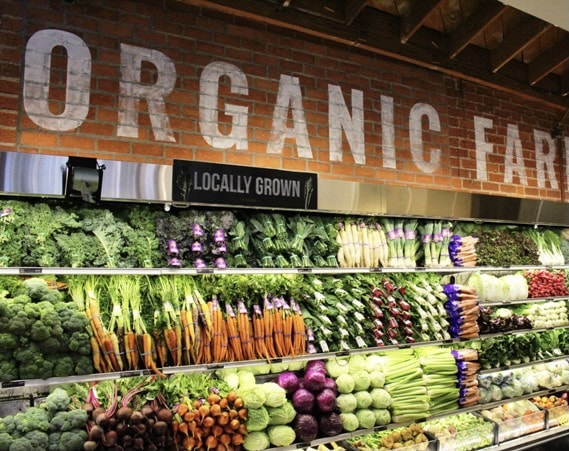
Best Vegan Foods For Gut Health
“Let food be thy medicine, and medicine be thy food.” Those are the famous words of ancient Greek physician Hippocrates, who we also know as the father of Western medicine. Thousands of years later, find ourselves studying and learning about what he already knew.
The importance of our gut health and the link to our overall health and wellness. Both mental and physical. The typical Western diet is rich in animal fats and processed foods. Incorporating more vegan-based food into your daily diet is an easy way to add fiber, healthy fats, and a variety of nutrients to your diet.
When we fuel our bodies with nutrient-rich foods that are good for us, we can get the bacteria in our gut to work in harmony with our bodies. This microbiome (the community of microorganisms living inside your body) is responsible for the digestive process that takes place in the gut. These microbes also play an important role in shaping your appetite, allergies, metabolism, and neurological function. Scientists have found that gut bacteria produce neurotransmitters such as serotonin, dopamine, and GABA. All of which play a key role in determining your mood. Some studies even suggest that gut bacteria may be a risk factor in developing neuropsychiatric illnesses. Like schizophrenia, ADHD, obsessive-compulsive disorder, and chronic fatigue syndrome.
Best Vegan Foods For Gut Health
Fiber
Fiber is one of the most crucial elements of any healthy diet. The average adult should be consuming at least 25 grams of fiber on a 2000-calorie diet. However, most people fall far below that. Upping your fiber intake will make gut bacteria happy. As well as decrease your risk of some diseases and health conditions. The fiber found in whole grains like oatmeal has been shown to lower LDL (bad) cholesterol levels. And fiber will also help you feel full longer, which could help prevent overeating. Some grains that are high in fiber include pearl barley, quinoa, buckwheat, oatmeal, and brown rice.
Dandelion Greens
Dandelion greens are fiber-rich greens that you can cook or eat raw. They increase healthy gut bacteria, reduce constipation, and boost your immune system, as well as have antioxidant and anti-inflammatory properties.
Garlic
This popular and flavorful herb has many health benefits due to its antioxidant, anti-inflammatory, and lipid-lowering properties. Garlic not only acts as a prebiotic, but it also helps prevent harmful bacteria from growing in your gut. It is also known to boost the function of the immune system. And can be helpful in fighting off a cold.

Asparagus
This popular vegetable is another great source of prebiotics. It’s high in insoluble fiber and also contains a small amount of soluble fiber to help keep you regular. Asparagus is low in calories and high in antioxidants. And due to its anti-inflammatory properties, can help reduce inflammation in the gut.
Bananas
Bananas contain vitamins, minerals, fiber, and small amounts of inulin. The less ripe the banana, the better. Green bananas contain resistant starch, which has prebiotic effects.
Apples
Apples contain pectin, a type of soluble fiber that has prebiotic benefits. Pectin increases butyrate, a short-chain fatty acid that feeds beneficial gut bacteria while also decreasing the population of harmful bacteria.

Probiotics
Prebiotics don’t actually contain any bacteria. They are types of fiber that act as food for the good bacteria in the digestive system. These fibers feed the friendly bacteria and help them grow. This, in turn, allows your gut bacteria to produce nutrients for your colon cells. Which then leads to a healthier digestive system. Some of these nutrients include short-chain fatty acids like butyrate, acetate, and propionate. Your body absorbs these fatty acids into your bloodstream, which can improve metabolic health. On their own, prebiotics don’t offer much benefit. But when you consume them together with probiotics, they have a positive effect on gut health.
Probiotics are beneficial bacteria that live in your body naturally. But are also found in certain foods and supplements. When incorporated into your diet, living strains of probiotic bacteria are added to the population of good bacteria in your digestive tract. This helps your intestines break down food more effectively and efficiently. By supporting a healthy gut environment, probiotics can help strengthen our immune response, making us more resistant to infections and illnesses.
Furthermore, probiotic supplements are not just for improving poor gut health but have also been linked to improved mental health. Regular and vegan probiotic supplements can easily be found at the health food store.
Kefir
One of the best vegan probiotics is kefir, a fermented beverage that has thick milk or yogurt-like consistency. Not all kefirs are vegan. So be sure to look for one made from coconut milk if you follow a vegan diet. The low levels of carbon dioxide and alcohol (not enough to get anyone inebriated) that are produced during fermentation make kefir slightly fizzy. When buying kefir, read the nutrition labels and look for one low in sugar.
Kombucha
Thought to originate in China or Japan, Kombucha is a fermented tea with many health benefits. It’s made by adding specific strains of bacteria, yeast, and sugar to black or green tea. It’s then left to ferment for up to two weeks. The fermentation process produces trace levels of alcohol and gases that make it naturally carbonated. Kombucha offers all the benefits of tea plus the added benefits of probiotics.

Tempeh
Besides being a probiotic, tempeh which is made from fermented soybean, is one of the plant-based foods high in protein. There has been some debate on whether or not tempeh is actually probiotic or just fermented. But either way, it contains iron, calcium, magnesium, and manganese, as well as being prebiotic. It’s a food item that should be a staple in any vegan or plant-based diet.
Kimchi
Kimchi is one of the staples in Korean cooking. This gluten-free food is made from fermented vegetables. Most often, cabbage is used. And then seasoned with spices like ginger, garlic, chili flakes, and scallions. This fermented food is rich in vitamins, low in sugar, and has lots of essential amino acids. It’s probiotic due to lactobacilli produced during fermentation. Studies show that kimchi has positive effects on cholesterol and antimicrobial activity. Sauerkraut which is similar to kimchi, is also made from cabbage but tends to be tangier and less spicy.
Non-Dairy Yogurt
Non-Dairy yogurt can be made from soy, coconut, almond, or another type of nut milk. Dairy-free yogurts make use of L. bulgaricus a probiotic. Which actually does a better job of breaking down sugar than L. acidophilus. If you haven’t already found a vegan yogurt you like, I suggest keeping an open mind. Depending on what the yogurt is made of will drastically change the flavor and texture. Keep sampling them till you find one you like. My personal favorite is the So Delicious Coconut Milk Yogurt.
Sweet Potato
Besides being packed with vitamin A, and vitamin C, sweet potatoes contain both soluble and insoluble fiber, contributing to a balanced gut environment. Soluble fiber acts as a prebiotic, serving as a fuel source for beneficial gut bacteria. These bacteria, in turn, assist with breaking down food particles, absorbing nutrients, and producing short-chain fatty acids that nourish the cells lining the intestines. On the other hand, insoluble fiber adds bulk to our stools and promotes regularity, aiding in the proper elimination of waste.
Sourdough Bread
One of the key factors that sets sourdough bread apart from conventional bread is its fermentation process. Traditional sourdough bread is made by combining flour and water and allowing the natural yeasts and bacteria present in the environment to initiate the fermentation process. This natural fermentation not only gives the bread its distinctive tangy flavor but also creates an environment that promotes the growth of beneficial bacteria known as lactobacilli.
When choosing sourdough bread, it’s important to opt for varieties made using traditional methods, as some mass-produced varieties may contain additives and preservatives that can disrupt gut health.
Pickled Vegetables
Pickled vegetables have long been recognized for their tangy flavors and ability to enhance meals. However, they also offer a range of benefits for your gut health. These preserved vegetables are fermented using a combination of salt, water, and vinegar. This creates an environment ripe with gut-friendly bacteria that are amazing for your digestive health. Enjoy some of these common pickled vegetables as a side dish, or add them to salads, sandwiches, or wraps. You can even use them as a flavorful topping for your favorite grain bowls.
- Pickled Radishes
- Roasted Red Peppers
- Purple Cabbage
- Beets
- Carrots
- Cauliflower
- Mushrooms
Improving Your Gut Health
The gut, often referred to as the “second brain,” is home to trillions of bacteria that make up your gut microbiome. These tiny organisms play a significant role in maintaining your gut health. They help break down food, produce essential vitamins, regulate inflammation, and protect against harmful pathogens.
By incorporating these top vegan foods into your diet and making conscious choices to promote gut health, you can experience the healing power of plant-based nutrition. Start transforming your digestive system and say hello to better gut health today.
I hope you found this helpful. Here’s to good health!
Xx Monti

